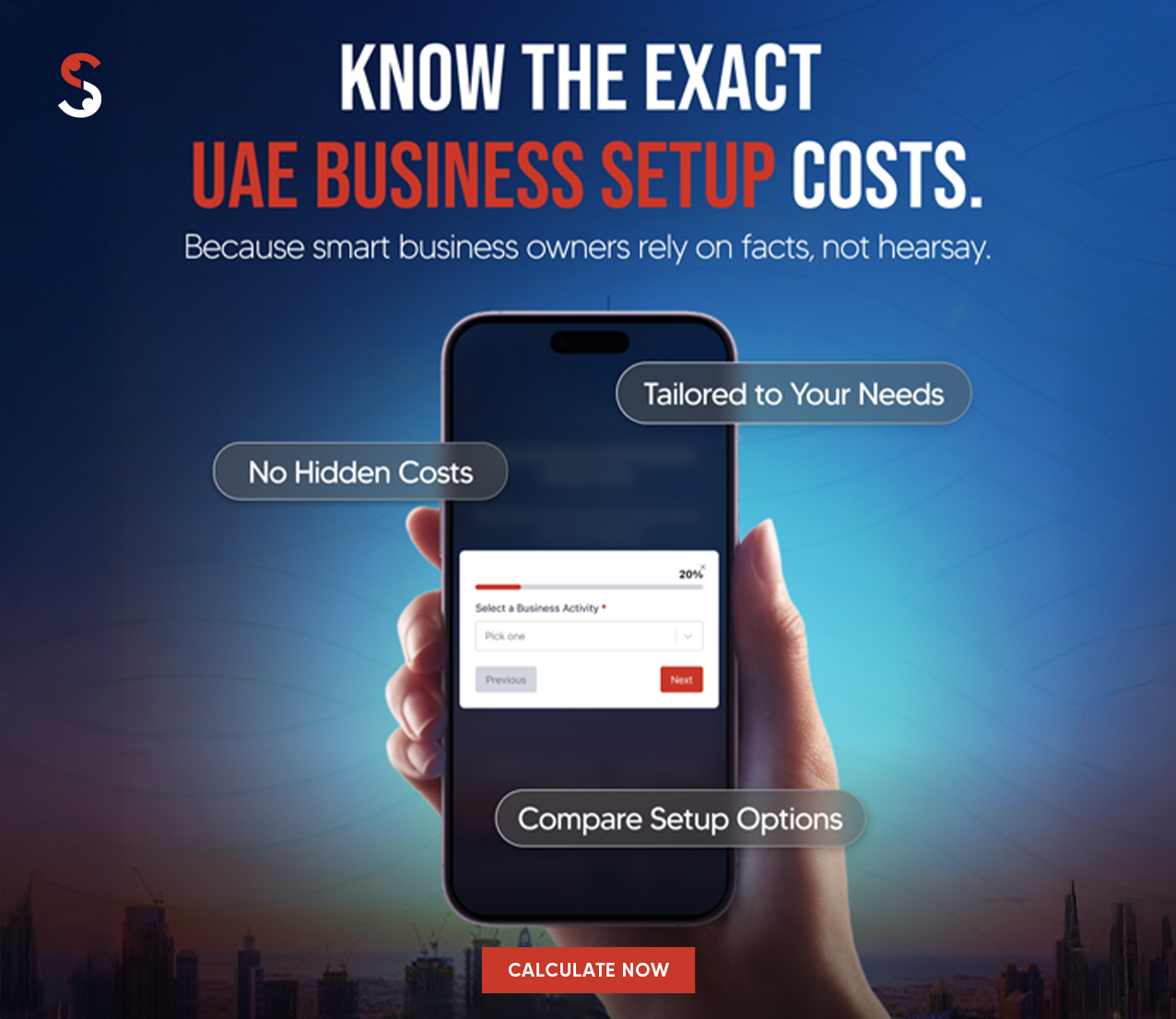Starting a business in the UAE is exciting as there’s so much opportunity here, whether you’re planning to set up on the mainland, in a free zone, or even offshore. But before you jump into the process, there’s one thing you really shouldn’t skip – a good business plan. It’s your roadmap that helps you stay clear about your goals, make smart decisions, and attract investors or partners along the way.
This guide is designed to make the whole process easy for you. We’re going to show you exactly how to build an effective business plan step-by-step, what key information to include, and give you smart tips specific to operating in the UAE.
What is a Business Plan? Your Blueprint for UAE Success
A business plan is more than just a document; it’s your strategic business establishment plan for launching and growing a successful venture in the UAE. Whether you’re targeting Dubai’s dynamic market or another emirate, a well-structured business plan format is your roadmap to securing licenses, funding, and long-term profitability.
Why You Need a Business Plan for Your UAE Project
Before you start your business journey in the UAE, it’s important to know why a solid business plan matters. Here’s how it can make all the difference:
- Gives you direction: A business plan acts as your roadmap to help you stay focused on your goals and track your progress.
- Helps with licensing: In the UAE, many authorities may ask for a business plan when applying for trade licenses or permits.
- Builds investor confidence: It shows potential investors or partners that you’ve done your research and have a solid plan to make the business work.
- Clarifies your finances: It helps you plan your startup costs, forecast revenue, and manage cash flow – key to avoiding financial surprises.
- Improves decision-making: With a clear plan, you can make smarter choices about location, marketing, pricing, and operations.
- Supports bank account opening: UAE banks often require a business plan to understand your company’s nature and expected financial activities.
- Prepares you for growth: A well-written plan makes it easier to scale your business, attract funding, and adapt to market changes.
UAE Business Plan Format: A Step-by-Step Structure
Most authorities and investors in the region expect a clear, concise document that reflects both global business standards and UAE-specific requirements. Here’s a typical UAE business plan format you can follow:
- Cover Page: Business name, logo, and contact details.
- Table of Contents: Easy navigation for readers or reviewers.
- Executive Summary: Snapshot of your business idea, goals, and key highlights.
- Business Description & Vision: Nature of business, mission, vision, and ownership details.
- Market Analysis: Overview of the UAE market, customer demographics, and industry trends.
- Competitor Analysis: Evaluation of key competitors and your market positioning.
- Marketing & Sales Strategy: Marketing channels, pricing model, and sales approach.
- Operational Plan: Business location (mainland/free zone), staffing, and workflow.
- Financial Projections: Cost breakdown, revenue forecasts, and funding requirements.
- Risk Assessment & Contingency Plan: Anticipated challenges and mitigation strategies.
- Appendices: Supporting documents such as charts, permits, product visuals, or CVs of founders.
Key Components of an Effective UAE Business Plan
Each part plays an important role in helping you define your idea, plan your strategy, and present your business confidently to investors or authorities.
1. The Executive Summary: Your Business’s First Impression
- What it is: The most important section! It’s a concise, high-impact overview of your entire plan, written to be read first but crafted last.
- Why it matters: It’s the first thing investors and licensing authorities will read and sometimes, the only part they’ll fully go through.
- What to include: Your business concept, the problem you’re solving, your target audience, what makes you different, a short financial overview, and funding requirements (if any).
Tip: Write this section last, even though it appears first; it’s much easier once the rest of your plan is ready.
2. Business Description & Vision: Defining Your Core
- What it covers: Explain what your business does, what products or services you’ll offer, and how you plan to operate.
- Mission & Vision: Describe your long-term goals and the values that guide your business decisions.
- Structure & Team: Share your company structure, key team members, and their roles.
Important For UAE Businesses: Mention your business jurisdiction (Mainland, Free Zone, or Offshore), your chosen license type, and any required local partners or sponsors.
Example: A tech startup in Dubai Internet City may highlight its vision to become a regional leader in AI-driven logistics, leveraging the UAE’s Smart City initiatives.
3. Market Analysis: Understanding the UAE Landscape
Purpose: To understand your target market and identify where your business fits in.
What to include:
- Your target audience – who they are, where they’re located, and what they need.
- Market trends – especially within the UAE’s fast-growing sectors.
- Gaps or opportunities – how your business fills an unmet demand.
Example: If you’re starting a fitness app, you might reference the UAE’s growing health-conscious population and government wellness campaigns.
Tip: Use local UAE data and insights, each emirate and free zone has its own market strengths and opportunities.
4. Competitor & Industry Analysis: Finding Your Edge
Why it’s important: Knowing your competition helps you position your brand smartly.
Include details such as:
- Direct and indirect competitors in the UAE market.
- Their pricing, marketing, and customer approach.
- Your competitive advantage – what makes your offering stand out (price, quality, service, or innovation).
Insight: As highlighted by the UAE’s Ministry of Economy, competitor analysis is a vital step in shaping a strong, realistic business plan.
Example: If opening a cloud kitchen in Abu Dhabi, analyze delivery-only competitors on platforms like Talabat and Zomato, and highlight your unique cuisine or faster delivery times.
5. Marketing & Sales Strategy: Reaching Your Customers
- Marketing plan: Outline how you’ll reach your customers through digital marketing, social media, influencer collaborations, events, or partnerships.
- Sales strategy: Define how you’ll sell your product or service – B2B, B2C, or direct sales, along with your pricing and promotional tactics.
- Branding and localisation: Make sure your branding aligns with UAE culture and regulations. For example, bilingual packaging or Arabic-language content when required.
Timeline: Add your marketing milestones, from pre-launch teasers to full-scale campaigns.
6. Operational Plan: Your Day-to-Day Blueprint
Purpose: This section explains how your business will function day-to-day.
What to include:
- Day-to-day Operations: Specify your facility needs (office/warehouse), location (Mainland or Free Zone), required equipment, and your supplier management strategy.
- Staffing and Roles: Detail your hiring strategy and management structure. Crucially, outline compliance with UAE labour regulations, your process for visa sponsorship, and if Emiratisation applies to your sector and size.
- Technology Systems: List the key software, equipment, processes, and quality control measures you’ll use.
Implementation Timeline: A realistic schedule covering pre-launch setup, launch day, and initial growth phase.
Example: If you’re opening a restaurant, include supplier agreements, kitchen setup, staff training, and HACCP food safety compliance.
7. Financial Projections: Proving Your Viability
Purpose: To show that your business is financially viable and sustainable.
What to Include:
- Startup costs: Trade license fees, rent, marketing, HR, and setup expenses.
- Sales forecast: Estimate your revenue for the first 1-3 years.
- Cash flow and break-even analysis: How much you’ll earn vs. spend and when you’ll start making profit.
- Funding needs: If you’re looking for investment, specify how much you need and how you’ll use it.
- Scenario planning: Include best, realistic, and worst-case financial outcomes – this shows you’re prepared for all situations.
Example: A Free Zone consultancy might estimate AED 150,000 in initial costs and plan to break even in year 2 through recurring client contracts.
8. Risk Assessment: Planning for the Unexpected
Purpose: To show you’ve thought ahead and can handle challenges effectively.
What to Include:
- Key risks such as market changes, supply issues, or regulatory updates.
- Risk mitigation plans – for example, backup suppliers or flexible marketing strategies.
- Alternative revenue ideas or ways to adapt during slow periods.
Why it matters: Investors and authorities appreciate entrepreneurs who plan not just for success, but also for uncertainty.
9. Conclusion & Next Steps: From Plan to Action
Purpose: To summarise your plan and end on a confident note.
What to Include:
- Summary of Strength: Briefly reiterate your unique selling points and why your team and plan will succeed in the competitive UAE environment.
- Immediate Next Steps: List the actionable items required immediately: securing the license, final company registration, and the first steps of executing the plan.
- A Friendly Reminder: Revisit and update your plan regularly as your business grows.
Quick Overview: Business Plan Structure at a Glance
A business plan becomes much easier to write when you break it into sections. Here’s a quick overview:
| Section | What It Includes | Key Tip for UAE Context |
|---|---|---|
| 1. Executive Summary | A short overview of your business idea, goals, target market, and what makes you unique. | Write it last as it’s easier once the rest of the plan is ready. |
| 2. Business Description & Vision | Details about what your business does, your mission, vision, products/services, and team. | Clearly state your jurisdiction (Mainland, Free Zone, or Offshore) and license type. |
| 3. Market Analysis | Research on your target customers, UAE market trends, and demand gaps. | Use UAE-specific data and emirate-level insights for better accuracy. |
| 4. Competitor & Industry Analysis | Overview of your direct and indirect competitors, their strengths, and your competitive edge. | Highlight what makes you different – service, price, quality, or innovation. Highlight what makes you different – service, price, or innovation. |
| 5. Marketing & Sales Strategy | Your marketing plan, sales channels, pricing, promotions, and launch timeline. | Adapt your marketing to UAE culture, language, and regulations. |
| 6. Operational Plan | Details on location, staffing, suppliers, logistics, and daily operations. | Align operations with UAE labour laws, visa requirements, and business regulations. |
| 7. Financial Projections | Startup costs, sales forecasts, cash flow, funding needs, and break-even analysis. | Include realistic figures accounting for UAE-specific costs and market conditions. |
| 8. Risk Assessment | Possible risks like competition or market changes and how you’ll manage them. | Always include contingency plans specific to the UAE business environment. |
| 9. Conclusion & Next Steps | A short recap of your strengths and future goals, plus immediate action points. | Review and update your business plan regularly as market conditions evolve. |
Common Mistakes to Avoid in Your UAE Business Plan
This section establishes authority and helps users avoid common pitfalls when creating a business plan for Dubai or other UAE markets.
- Mistake 1: Over-Optimistic Financials. Using unrealistic, non-research-backed numbers for the UAE market.
- Mistake 2: Ignoring Local Culture. Failing to adapt marketing and operations to UAE customs, language, and regulations.
- Mistake 3: Vague Competitor Analysis. Simply stating you have “no competition” is a major red flag for investors.
- Mistake 4: Underestimating Setup Costs. Forgetting hidden costs like knowledge fees, translation services, or visa medicals.
UAE Business Plan Template & Example Snippet
Here’s a practical example to guide your business plan format development:
Executive Summary for a Dubai E-Commerce Store
- Business Concept: “Desert Blooms” is an online store delivering curated, sustainable gift boxes across the UAE.
- Target Market: Residents and tourists seeking premium, locally-sourced gifts.
- Unique Value Proposition: Hyper-local sourcing, next-day delivery in Dubai, and carbon-neutral packaging.
- Financial Snapshot: Projecting AED 500,000 in revenue in Year 1, reaching break-even by Month 10.
- Funding Required: Seeking AED 200,000 for initial inventory and marketing.
UAE-Specific Considerations for Your Business Plan
Before launching your business in the UAE, it’s important to understand the local setup options, legal requirements, and business culture. Here’s a quick breakdown:
- License Types: Choose between Mainland, Free Zone, or Offshore licenses; each has different ownership rights, location benefits, and operational flexibility. Your business plan should reflect which setup suits your goals.
- Local Sponsorship (Mainland): While 100% foreign ownership is now common for many Limited Liability Companies (LLCs), some strategic sectors or certain legal structures still require a Local Service Agent (LSA) or partner. If an LSA is needed, your business plan must include a budget for the LSA fee/annual retainer and detail the LSA agreement.
- Cultural & Regulatory Aspects: Consider local holidays, Arabic documentation requirements, and UAE labour laws when planning operations, recruitment, and timelines.
- Market Entry Tips: Build connections by networking in major hubs like Dubai and Abu Dhabi, attending trade expos & events (e.g., GITEX, Arabian Travel Market, Big 5), and leveraging government SME support programmes.
- Expert Guidance: Consult with professionals like Shuraa Business Setup to ensure your business plan aligns with UAE regulations, structure requirements, and market dynamics.
How to Use Your Business Plan to Engage Stakeholders
A good business plan helps you connect with everyone involved in your project. From investors to government authorities and your own team, it acts as a communication tool that keeps everyone on the same page.
- For investors and banks: A well-structured plan helps you pitch your business idea confidently. It shows your goals, revenue potential, and how you plan to achieve them, which makes it easier to secure funding or partnerships.
- For government and licensing authorities: In the UAE, entities like the DED or free zone authorities often ask for a business plan during license or approval applications. It reflects your intent, compliance, and readiness to operate.
- For your internal team: Your plan gives direction and helps your team understand the company’s mission, vision, and short- and long-term goals.
- Example: When onboarding your first Emirati or expat team members, your business plan acts as a roadmap, helping them see where the business is headed and how they fit into the bigger picture.
How Shuraa Can Help You Craft a Winning Business Plan
A good business plan in the UAE is your guide to building something real and lasting. It keeps you on track, helps you make smart choices, and shows investors or partners that you’re serious about what you’re doing.
Start simple. Take it one step at a time – write a section today, refine it tomorrow. Before you know it, you’ll have a plan that clearly shows where you’re heading. You’ve totally got this.
And if you’d like a little help along the way, Shuraa Business Setup is here for you. We help entrepreneurs with everything from writing and refining business plans to getting trade licenses, choosing between mainland and free zone setups, and making sure your plan fits UAE rules and costs.
Need a business plan template or some expert advice to get started? Reach out to us and let’s turn your idea into a successful business in the UAE.
Frequently Asked Questions (FAQs)
1. Do I need a business plan to start a business in the UAE?
Yes. While not every setup requires a lengthy plan, most licensing authorities, free zones, and banks in the UAE ask for at least a basic business plan to understand your goals and financials. It’s also essential if you’re seeking investors or partners.
2. What is the best business plan format for a Dubai Free Zone?
The best format follows the standard structure but emphasizes the specific advantages of your chosen free zone. It should clearly outline how your business will operate within and benefit from the free zone’s ecosystem and regulations.
3. Can I get funding without a business plan in the UAE?
It’s unlikely. Banks and investors in the UAE usually require a business plan to evaluate your project’s feasibility, profitability, and long-term potential. A clear, well-structured plan increases your chances of getting approved for funding.
4. How long should my business plan be?
It depends on your business. For most startups or SMEs in the UAE, a 10–15-page business plan is enough. Keep it clear, focused, and backed by facts, as quality matters more than length.
5. What makes a good business plan for the UAE market?
A strong UAE business plan includes local insights, like market trends, licensing requirements, cost structure, and competition in your chosen jurisdiction (mainland, free zone, or offshore). It should also reflect cultural and legal awareness.
6. Can someone help me write my business plan for the UAE?
At Shuraa, we specialize in developing tailored business plans that are strategically aligned with UAE regulations, specific licensing requirements, and the critical expectations of investors to secure your venture’s success.










